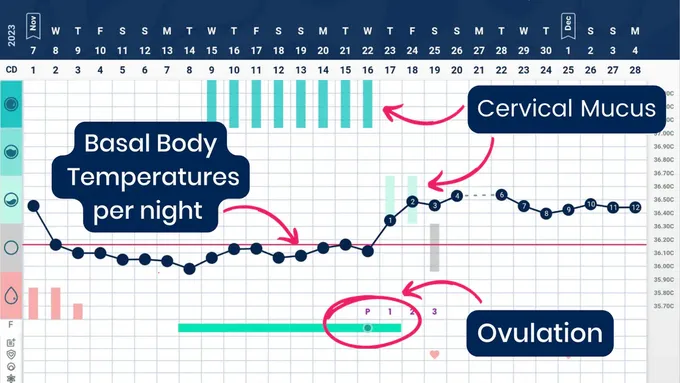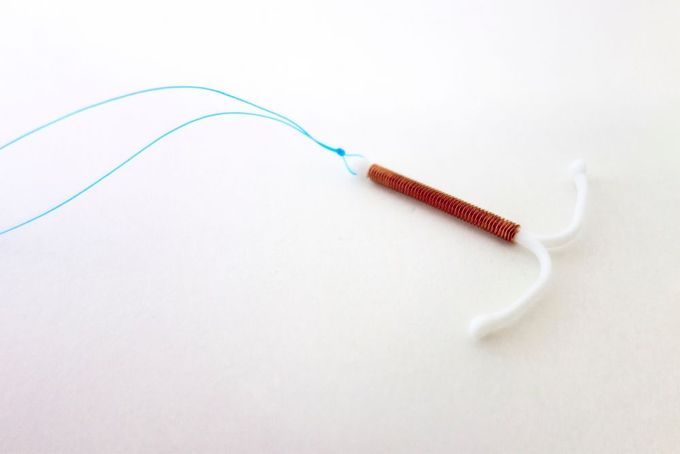Birth Control: What Are Your Options?
Updated May 5, 2025

In the world of women’s health, it seems like birth control is one of the biggest discussions - and rightly so! Being able to plan your family (when and if you do or don’t want a baby) is incredibly powerful, and sometimes it’s hard to remember that reliable, well-defined birth control has only been around for less than a hundred years! Considering how long we have been around as humans, that’s a relatively short time. And it’s all thanks to advancements in science.
So what are your options? Well, let’s jump in!
Fertility Awareness
Using a method of cycle tracking (not simply period tracking) is called fertility awareness. By capturing biomarkers like basal body temperature, cervical mucus, and other secondary signs, you’re able to track the phases of your cycle and determine whether you are fertile or infertile. That’s right, you’re not always fertile!
You gather these data points (I promise it’s not as daunting as it may sound), interpret it using your chosen method, and you can tell if you are infertile or assumed fertile on any given day.
While many people often talk about “the fertility awareness method” as a blanket term, there are actually a variety of methods. The more reliable types include mucus-only methods, sympto-hormonal methods, and sympto-thermal methods (of which, double-check methods are more effective than single-check methods). If this is the direction you want to go, do some research into the types of methods to figure out what will work best with your lifestyle.
Benefits
- You aren’t altering your natural hormones. Natural estrogens and progesterone are all important to the rest of your body functioning properly.
- When you allow yourself to have a natural cycle, you can notice if something is off with your health because it usually affects your cycle.
- You gain a lot of power from living in sync with and listening to your body. It honestly has a lot to tell you!
- These are based on modern science, and can have efficacy rates as high as 98.2%!
- This generally works best for long-term partners, as trust is a major element. The upside to this is that if both partners want to be involved in fertility charting, it’s entirely possible, and even recommended.
- Once you’ve learned a method, it’s a life skill that you can pass on to future generations.
Down Sides
- It does take time to learn and master fertility awareness methods, and you may learn in a different way than others. You may be able to learn from a course or book, or may benefit more from personal instruction. (Note that all official studies with efficacy rates are based on learning from trained fertility awareness educators.)
- Self-taught methods generally recommend three full cycles before fully trusting the method as birth control, although learning from an instructor may allow for going unprotected during the first cycle.
Using fertility awareness will mean abstaining or using another method (such as a barrier method or withdrawal, more on both below) during your fertile period.
Hormonal Birth Control
There are many different hormonal birth control options out there. While the pill is the most widely used (and I will note there are even a few different types of the pill), there are also options such as the Depo shot, Nexplanon, Nuva ring, and hormonal IUDs.
Hormonal birth control largely relies on progestin (which is a synthetic form of progesterone) to suppress ovulation and control your bleeding pattern, sometimes with an estrogen mixed in. You can read more about progestins and hormonal birth control in this article, but suffice it to say that while the names are similar, progestin isn’t the same as progesterone (your body’s natural hormone), and is likely where most of the side effects of today’s hormonal birth control originate.
Benefits
- Some of these options are the set-it-and-forget-it style of birth control. This is especially true of the Depo shot, Nexplanon, and hormonal IUDs.
- Hormonal birth control may be useful in treating some women’s health issues (although it’s not nearly the universal treatment some doctors treat it as).
- Hormonal birth control has a variety of efficacy rates, and using the typical use rates will allow for anywhere between about 90-99% efficacy.
Down Sides
- Your body doesn’t get the benefits of your natural hormones - all of which play key roles in the rest of your body’s systems.
- Many of these have long lists of side effects, from depression and anxiety disorders to clots and so much more.
- It's hard to know if these types of birth control don't work for you until you've become pregnant.
- If you choose the pill, you have to take it at the same exact time every day, meaning you need to be sure to take it with you or always be home when you need to take it.
- This doesn’t protect from STIs, so if that is a concern for you, you should also use a barrier method.
Barrier Birth Control
Another birth control option is to use barrier methods. These place a barrier (physical and/or chemical) to prevent sperm from reaching an egg. These include female and male condoms, diaphragms, cervical caps, sponges, and even spermicide.
When using fertility awareness, many couples use barrier methods on fertile days to prevent pregnancy. It’s important to check with your method to know the protocol of checking your biomarkers if and when you choose to use barriers (for example, you may be unable to accurately mark cervical mucus for one day after using a barrier with your fertility awareness method).
Benefits
- Barrier birth control is often relatively inexpensive, and in many areas you can get these free or low cost through insurance or a local health department.
- Many people find barriers - especially diaphragms and cervical caps - to be comfortable.
- The side effects are easy to notice since barriers don’t change your hormone production (more on these side effects in the last bullet below).
Down Sides
- Many barrier methods do rely on proper sizing - for condoms, diaphragms, etc. This can be tricky for some to figure out.
- Forgetting to use a barrier even once means you may not be successful in your intentions. It’s easy to get caught up in the moment and forget.
- Some types of barrier birth control may cause irritation or be uncomfortable for one or both partners. It may take some trial and error to find your goldilocks of barriers.
If you want more information and a breakdown of each form of barrier method read this article.
Other (Withdrawal, copper IUD)
There are a few other methods of birth control that I think are important to mention: withdrawal and the non-hormonal (copper) IUD. These methods are, along with barriers, also used alongside fertility awareness during fertile periods of the cycle. I won’t go into these two as deeply.
Withdrawal
Using withdrawal (or the "pull-out method") often gets a bad rap. And it does indeed have a relatively low typical use efficacy rate when compared to a lot of the other methods of birth control discussed here. However, there are specific rules to withdrawal, which when followed correctly can make it more effective. This isn’t the article for that discussion, but if you already do or would like to use withdrawal, I recommend looking up the guidelines for using withdrawal properly.
There is an ongoing discussion (or debate) about whether sperm that is occasionally present in pre-ejaculate causes pregnancies, which is also an interesting topic, but not for this article either. Again, it may be worth looking into if this is a method you’re considering.
Copper IUD
The copper IUD differs from hormonal IUDs because, well, it doesn’t release hormones. Instead, it causes some inflammation and other responses in your reproductive tract that prevent fertilization and/or implantation from happening. It doesn’t suppress ovulation as often as hormonal IUDs do, though it can for some women.
Overall, your choice of birth control is incredibly personal. The choice you make may not be the same as your best friend’s, sister’s, or anyone else you’re close to. For those of us at Tempdrop, we love the power that comes from listening to and understanding your body - which is what fertility awareness is all about.









